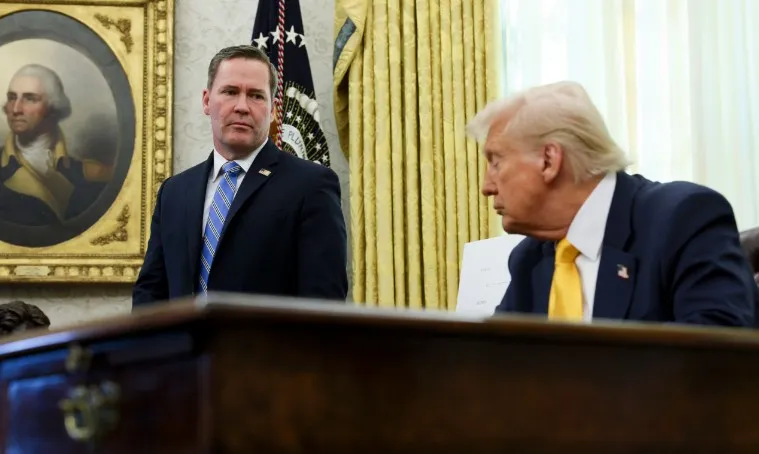In a startling breach of national security protocols, senior officials within the Trump administration inadvertently included Jeffrey Goldberg, editor-in-chief of The Atlantic, in a Signal group chat detailing imminent U.S. military operations in Yemen. This unprecedented incident raises significant concerns about the handling of classified information at the highest levels of government.
Accidental Disclosure of Sensitive Military Plans
On March 15, 2025, at 11:44 a.m. Eastern Time, Defense Secretary Pete Hegseth shared a comprehensive "TEAM UPDATE" in a Signal chat group named "Houthi PC small group." This message contained precise details about the planned strikes against Houthi targets in Yemen, including information on weapons packages, specific targets, and the operation's timing. Unbeknownst to the officials, Goldberg had been mistakenly added to this group, granting him access to this highly sensitive information.
Key Officials Involved
The Signal group comprised several top-tier members of the Trump administration's national security team, including:
📌Vice President JD Vance
📌National Security Advisor Michael Waltz
📌Defense Secretary Pete Hegseth
The inclusion of such high-ranking officials in a non-secure communication platform for discussing classified operations is both unconventional and alarming.
Immediate Aftermath and Official Response
Upon realizing the error, the National Security Council (NSC) acknowledged the authenticity of the message thread and initiated a review to understand how the inadvertent inclusion occurred. NSC spokesman Brian Hughes emphasized that, despite the breach, there was no compromise to national security or risk to service members involved in the operation.
Legal and Security Implications
The use of Signal, an encrypted messaging app, for disseminating classified information raises significant legal and security concerns. Legal experts suggest that such actions may violate the Espionage Act, which governs the handling of national defense information. Additionally, the failure to preserve these communications could breach federal records regulations, as Signal messages are typically ephemeral and not archived.
Political Repercussions and Congressional Reaction
The incident has sparked outrage among lawmakers, with members of Congress calling for thorough investigations and accountability. Senator Mark Warner criticized the administration's carelessness, stating that such breaches endanger national security and the safety of American personnel. The event has intensified scrutiny over the administration's communication practices and adherence to established security protocols. Axios
Conclusion
This inadvertent disclosure underscores the critical importance of stringent communication protocols within the highest echelons of government. As investigations proceed, it remains imperative to address these vulnerabilities to prevent future breaches that could compromise national security.



